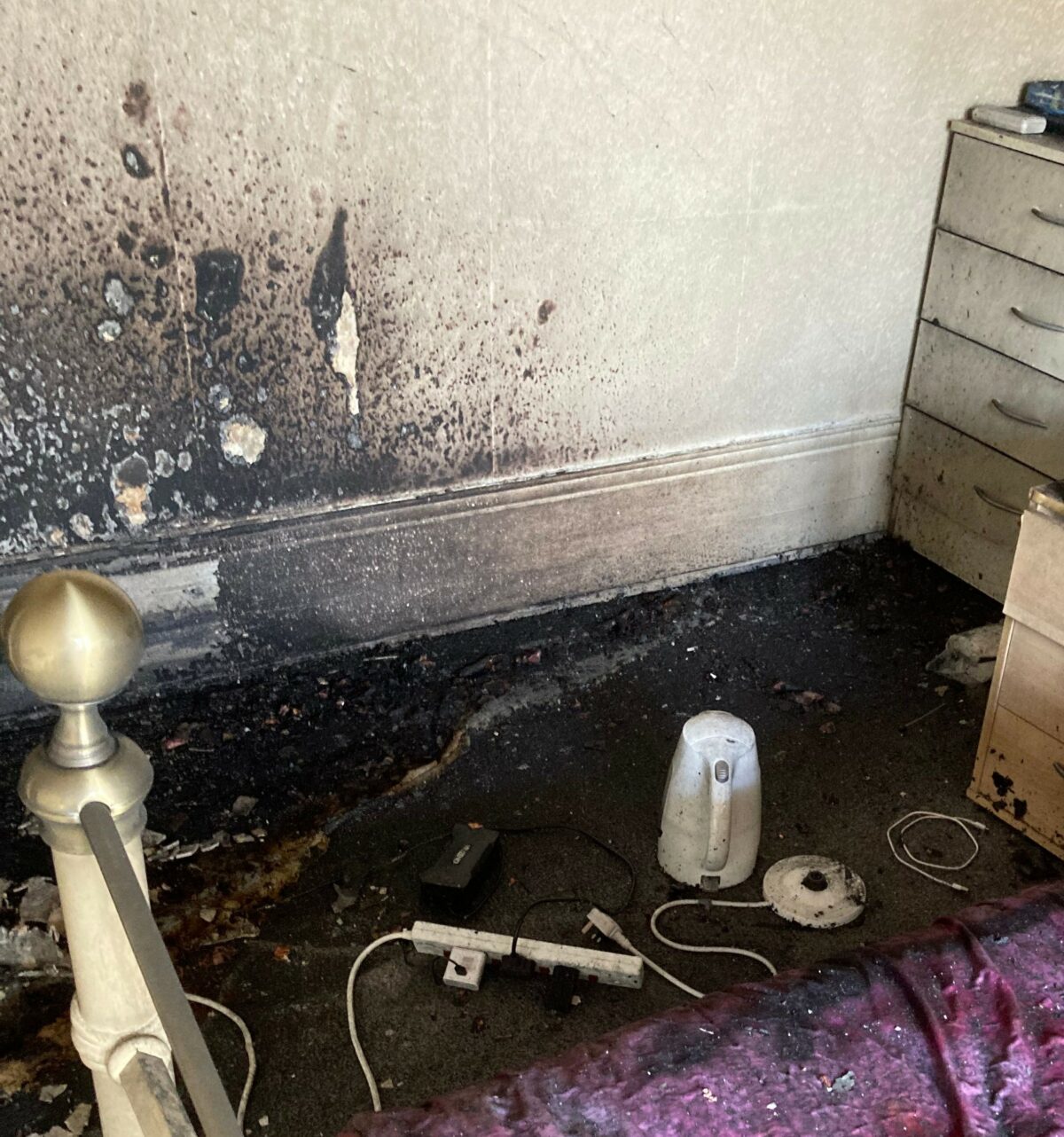Concerned fire officers and trading standard experts have warned of the dangers of e-bikes and e-scooters after a devastating fire in Newcastle.
Tyne and Wear Fire and Rescue Service (TWFRS) and Newcastle City Council have issued the warning after a residential fire in Elswick earlier this month.
Firefighters from Newcastle Central Community Fire Station responded to the blaze on July 11th when a lithium-ion battery on an e-bike caught fire while charging in a bedroom.
The occupant of the property was not present at the time and the fire did not spread beyond the flat, so thankfully there were no injuries.
The incident comes just weeks after a mother and her two children were killed in a house fire in Cambridge, believed to also have been caused by an e-bike.
TWFRS say the fire in Elswick was caused by a lithium-ion battery, fitted to a standard bike, that overheated while left on charge.
Station Manager Graeme MacDonald said: “In Tyne and Wear we have seen an increase in these types of fires and this incident shows how dangerous they can be.
“Thankfully the occupant was not home and there could have been a different outcome if they had been present.
“Always ensure that you have working smoke alarms, and never leave batteries to charge while you are asleep or away from your home.
“We would recommend that you are observant with the batteries and consider this checklist. Always look out for…the battery getting overly hot, any leakage and unusual behaviour, the battery not holding charge, and appearing to be warped.
“Our focus is always to ensure that people using e-bikes and e-scooters are doing so safely to not only protect themselves but also the lives of others.”
Newcastle’s Cabinet member for a Dynamic City, which includes regulatory powers, Cllr Irim Ali, said: “I welcome this warning from the fire service to highlight the important safety issues with these batteries.
“When purchasing any electrical products like this, consumers must be aware of the dangers defective products pose and ensure they comply with various safety requirements including the correct technical documentation, the correct charger, that they are marked with the UKCA and/or CE marks and are fitted with the requisite UK compliant electric plugs for our market.
“Getting this wrong can have catastrophic consequences causing injury and even death. It can be financially crippling for importers and retailers.
“Trading Standards can seize non-compliant devices and gain a forfeiture order so that they can safely dispose of them. We advise anyone selling these devices to get them tested to make sure they comply with product safety laws.
“If consumers have any concerns about the safety of products, they can contact the Citizens Advice Consumer service on 0808 223 1133. Businesses can also make contact to receive advice from trading standards.”
TWFRS and Newcastle City Council have echoed the advice of the National Fire Chiefs Council (NFCC) who are working nationally to address the dangers posed by lithium-ion batteries.
Specifically on e-bikes and e-scooters they have said:
- Charge batteries whilst you are awake and alert so if a fire should occur you can respond quickly. Don’t leave batteries to charge while asleep or away from home.
- Always use the manufacturer approved charger for the product, and if you spot any signs of wear and tear or damage buy an official replacement charger.
- Do not cover chargers or battery packs when charging as this could lead to overheating or even a fire.
- Do not charge batteries or store your e-bike or e-scooter near combustible or flammable materials.
- Do not overcharge your battery and do not overload socket outlets or use inappropriate extension leads.
- Avoid storing or charging e-bikes and e-scooters on escape routes or in communal areas of a multi occupied building. If there’s a fire, it can affect people’s ability to escape.
- In the event of an e-bike, e-scooter or lithium-ion battery fire – do not attempt to extinguish the fire. Get out, stay out, call 999.
- Current legislation bans private e-scooters and e-bikes from being ridden in public but the use remains widespread across the UK.
You can read the comprehensive fire safety, charging and storage advice on the National Fire Chiefs Council (NFCC) website.



